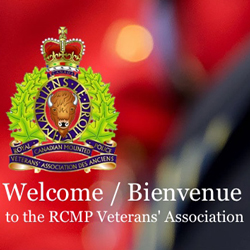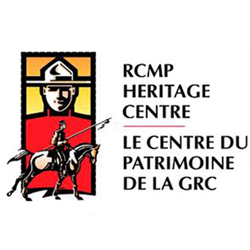It Happened 70 Years Ago!
It Happened 70 Years Ago!
At the request of the Province of British Columbia the RCMP assumed responsibility for provincial policing and absorbed the members of the British Columbia Provincial Police Force (BCPP) into its ranks. August 01, 1950, the Force takes over the BCPP, 492 members immediately switch over to the RCMP. The BCPP cars will introduce the “Holstein” look – black cars with white doors – which will be adopted across the Force as the look for all Highway Patrol cars.

The first Commanding Officer of “E” Division is Assistant Commissioner Alan T. Belcher, Reg # 9150/O.234, who will head up the largest RCMP Division in Canada with a policing area of over 366,255 square miles! Not bad for a guy who joined January 1, 1920, as a trumpeter. He retired as a Deputy Commissioner.

On the sunny side of the changeover from the BCPP to the RCMP the Scarlet and Gold magazine wrote the following in their 32nd edition:
[I don’t think the flowery prose the writer used would get past an editor’s desk these days. Even after 70 years there are still calls from certain sources that the province should return to its own provincial police force.]
“On the 15th of August, 1950 a history making event took place in the province of British Columbia when the Royal Canadian Mounted Police took over the task of policing the province from the British Columbia Provincial Police. The transfer which was made constituted a mile post of historical importance. The B.C. Police, older in years of continuous service than the RCMPolice, have seen the west coast province grow and prosper from the early settlement days of 1865.

Attorney General Gordon Wisner and Superintendent Clifford Harvison (Reg # 8758/O.311 – later Commissioner) sign new police contract at Fairmont Barracks. Observing on left is Insp. George Archer (Reg # 11390/O.330 – later Chief of the Vancouver Police Department) – on the right is Inspector Joseph Bella (Reg # 10391/O.335 – retired as Assistant Commissioner)
The causes which led to the change in policing of the province were, as might well be expected, varied and important. However, in a statement by the attorney general of British Columbia, the Honourable Gordon Wismer, he outlined that in the change-over an estimated saving of over one million dollars would be effected.
The move was under discussion for some time and had been mentioned in the press at intervals during the past ten years. The final negotiations were concluded when Commissioner S.T. Wood of the RCMPolice conferred with government heads in Victoria in the spring of 1950, and the final plan came to full fruition in mid-August last.
As might be expected, there were criticisms from certain sections of the province regarding the change, but for the most part. The action of the government in requesting the Mounted Police to take over the work in British Columbia had wide approval from every part of the province and from all sections of our community life.
Much has been written of the history of the British Columbia Provincial Police and the notable success which attend their efforts to give the people of British Columbia a sound and efficient police service. Down through the ranks of the men who formed that force, a fine spirit of Esprit de corps and self-sacrifice has always existed. The force goes out of existence leaving a fine tradition of service behind it and the people of British Columbia as well as thousands of visitors who flock to her costal and interior towns and cities throughout each year, will remember with pride and a full measure of thankfulness he work which the force accomplished during its long history.
To assume control of the RCMPolice in British Columbia, the Commissioner appointed Deputy Commissioner Allan T. Belcher to head the British Columbia Division. The son of an officer of the Force, Deputy Commissioner Belcher has had long and distinguished service in the Royal Canadian Mounted Police. Well known throughout western Canada, he had served as officer commanding “E” Division in Vancouver and prior to his appointment to the west coast province, was office commanding the RCMPolice at Edmonton.
The changeover was made without fanfare or fuss. This is in keeping with the tradition of the RCMP police and the necessary changes of personnel were completed without undue inconvenience to members of the old force, many of whom were accepted for service in the RCMPolice. Rates of pay, allowances and pensions were matters which required detailed attention and it is a tribute to the efficiency of our Federal law enforcement body that these were settled to the satisfaction of all concerned.

at Fairmont Barracks
Supt. Harvison, O.C. Vancouver was appointed officer commanding in Victoria, and Inspector Archer was appointed to command Fairmont Barracks in Vancouver. Both are experienced officers and have fine records of service in the force.
In view of the somewhat unsettled conditions which the Province of British Columbia in company with other provinces across the dominion have experienced during the past years, it is a matter of great satisfaction to the people of British Columbia that one of the most important problems facing our democratically and efficiently and that our west coast province can expect with the utmost confidence the same careful and courteous police service which other provinces have experienced on a similar contract with the Federal government.
Without question the change over which will be regarded as beneficial in the years to come, as it strengthens the administration and justice across Canada which is at once more efficient and more economical. No less is it true that the Canadian people accepts with pride the efficient police service which he RCMPolice provide. They know the force, its integrity, its honesty and its efficiency. Down through three-quarters of a century the men in scarlet tunics have added lusture to the work of the old North West Mounted Police who marched across the almost limitless prairie land, bringing organized law and order to a wild and lawless frontier.
From the many thousands of our own people who know the work of the Force, and the vast number of their admirers in other lands, the extension of the work of the Mounted Police to included British Columbia will bring expressions of congratulations and good wish for success in the years to come.”

It doesn’t appear a lot of planning went into the new signage. Looks like the new RCMP sign is hanging by a couple of wires and is much smaller than the former BCPP sign.
On the darker side of the changeover Robert Matas wrote the following on September 10, 2010:

It happened right before their eyes, but the police have never figured out why the B.C. government in 1950 disbanded the 92-year-old B.C. Provincial Police and allowed the RCMP to take over policing for much of the province.
“I don’t think you will ever find out. We never found out,” said one of the few remaining veterans of the force, who spoke on condition that he would not be identified.
Gordon Wismer, who was then attorney-general, negotiated the entire arrangement over the phone with then-federal justice minister Stuart Garson, the former officer said.
Municipalities policed by the BCPP were not given an opportunity to debate the initiative. “The council in Burnaby voted Monday they would not have the Mounted Police in their [municipality] and they went in on Tuesday morning to find them [the RCMP] in the building. That happened in a lot of municipalities. The attorney-general signed it, and [the provincial police force] was gone before we knew it,” he said.
The B.C. Provincial Police, formed in 1858, had 530 officers in 123 police detachments across the province when it was shut down. The shift was widely condemned. Several officers quit, rather than transfer to the RCMP. Municipalities fired off hostile letters to the provincial government, expressing their anger at not being consulted.
The Victoria Colonist called for Mr. Wismer to explain the changeover. The government had “not one iota of a mandate from the electors to hand the scheme in the way it was, without discussing the full pros and cons in the legislature,” a newspaper editorial stated. “The way in which the thing is being done is out of line with the principles of parliamentary procedure on the one hand and plain common sense on the other.”
Don N. Brown, a former BCPP member who died last year, tried to find out why the force had been closed down. Mr. Brown had served three years in the provincial police force before being transferred into the RCMP. He retired as a superintendent after 27 years as a Mountie. He could not find any answers.
Mr. Brown wrote up his search for answers in “Why? The Last Years of the British Columbia Provincial Police”, published in 2000. Several theories are considered and dismissed. Among the possible explanations: the federal government wanted the RCMP in B.C. to fight communism; the B.C. government believed the RCMP, which was to be partly financed by the federal government, would be cheaper than the provincial force; the provincial government was concerned about a movement to unionize officers in the BCPP.
“There is absolutely no meaningful reason for the disestablishment of a police force recognized by all as courageous, compassionate and well-experienced in the policing of not only the rugged wilderness of B.C. but also … in the policing of large populated urban areas,” Mr. Brown wrote.
“On the pretense of ‘saving money,’ a coalition of Liberals and Conservatives that formed the government of B.C. [at that time] sold the BCPP ‘down the river,’ ” he said.
In an epilogue, he called for the reinstatement of a provincial forc


From the Ministry of Transportation and Infrastructure’s web site: A Brief History of the BC Highway Traffic Patrol – May 16, 2019
In some respect the BC Provincial Police did live on. At least their uniforms did!

Origins of the Department of Highways Traffic Patrol
The BC Highways Patrol officers were not armed, utilized white and orange patrol vehicles and motorcycles with Red (only) lights and were uniformed in the then defunct British Columbia Provincial Police uniforms.

During the 1950s, British Columbia was undergoing an incredible post war boom. New highways infrastructure projects (bridges and freeways) were being built at a rapid pace, automobiles were everywhere, and cell phones and the internet were light years away. Motorists often needed help at the roadside and the Department of Highways Traffic Patrol was there to help.
Formed in 1958, the Department of Highways Traffic Patrol was responsible for traffic control on five major lower mainland bridges – First Narrows (Lions Gate), Second Narrows (Iron-workers Memorial), Oak Street Bridge, George Massey Tunnel, Port Mann Bridge and all their approaches. The patrol consisted of both corporals and patrolmen (approx. 30-40), who were sworn in as reserve constables with the Vancouver City Police, West Vancouver Police and the BC RCMP. None of the patrol ever had or carried guns while on duty.

Day to Day Activities of the Patrol
The biggest part of highway patrol work was to keep traffic moving. If vehicles broke down while on a bridge or in a tunnel, patrol officers got you moving again, either by radioing for a tow truck, fixing flat tires or even helping get you to a service station for gas or repairs.
Patrol officers were trained in first aid and their peace officer and special provincial constable status meant they could act as first responders in traffic accidents. The highway patrol offices at the Lions Gate Bridge and the Port Mann Bridge were equipped with extrication kits (also known as the jaws of life) and each patrol member was trained to use them.
Then of course there was the enforcement, which included radar enforcement and moving violations. Sometimes patrol members would conduct a safety check on a vehicle, run the driver information through the police database and discover the person had a warrant out for their arrest, so we would arrest them and take them down to the police station and lodge them into a cell there for the police.
Officers were sometimes deployed to local emergency scenes (such as the Hope Slide and the Deeks Creek Washout) as well as Horseshoe Bay and Tsawwassen Ferry Terminals to help with traffic control during the busy summer months.

What Happened to the BC Highway Patrol?
The special constable status of patrol members was challenged in 1982-83 and as a result, a provincial judge removed their status and ability to enforce infractions. Municipal and RCMP Traffic Services took over patrol enforcement duties and from 1983-1988 the highway patrol focussed only on removing stalled vehicles, attending collisions and doing brake checks at Horseshoe Bay terminal approach.
Following the privatization of highways in 1988, the patrol was merged into an early version of today’s Commercial Vehicle Safety Enforcement Branch, joining commercial vehicle Weighmasters and Motor Vehicle Inspectors to form the Motor Vehicle Branch.
So, there you have it. A brief history of BC’s very own highway patrol. We hope you enjoyed this trip down memory lane.”



 July 25, 2020
July 25, 2020 






